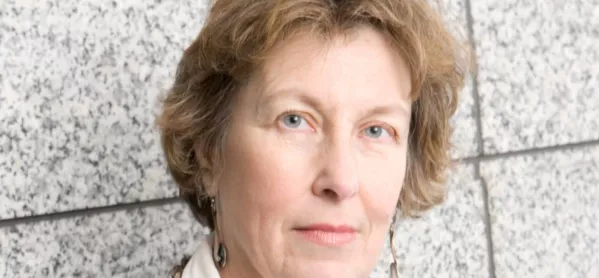Access to “second-chance” education for adults has “gone backwards” in the UK, according to the author of the Wolf Report.
Speaking in a video as part of the Rethinking Skills Symposium at City of Glasgow College, Baroness Wolf of Dulwich set out her three main challenges for the FE sector. “If we can make some progress on those, then everything else falls into place”, she said.
“And it is very important that we do, because skills training is always the area where people say ‘Oh, we believe in it, it is so important’, and in reality, it is always the one that gets left behind.”
Baroness Wolf is the Sir Roy Griffiths Professor of Public Sector Management at King’s College London, and author of the 2011 government-commissioned review of vocational education. She also sits on the expert panel for the government’s post-18 review, which is expected to report back in the coming weeks.
Speaking to Tes from Glasgow ahead of the conference, Baroness Wolf said access to re-training was “the area where we have gone backwards”. “What was the strength of our quite messy system, particularly in Scotland, but also in England, was that second chance. We care terribly about giving courses for the unemployed, but we seem to have gone backwards for the large adult population,” she explained.
Wolf’s 3 challenges on skills
- Access: “The most important challenge for me, the very first one, is simply how to make it possible for adults to engage in re-training, to do something in the middle of busy lives,” Baroness Wolf said. This, she added, was about how the education sector structured its offering, but also about how provision was funded by the government, and “how we impress on employers the importance of making it possible to take time off. If we don’t address the structure, the accessibility, then nothing else will follow.”
- Unknown future: The most intellectually challenging issue, Baroness Wolf said, was about what it is we actually want people to learn. “There is a huge amount of discussion around how our whole economy is going to change, how artificial intelligence (AI) is going to revolutionise everything - and it is probably true - but what is also true is that we don’t have a clue which way it is going to go,2 she said. “We have never got this right in the past, so why would we get it right this time? Either way, what we have to be aware of is giving people training in super specific skills for today’s jobs is a bad idea. We have to make our system really flexible, and we have to concentrate on quite general skills.”
- Basic skills: Baroness Wolf said the third question was whether the UK could get serious about basic skills, “which aren’t basic at all”: “If it was so easy to develop good mathematics, good reading, writing, the ability to analyse, the ability to speak fluently, we wouldn’t be shutting our children up in classrooms for 15 years. It takes a long time. But we also know that in adult life, not having a very good general education is a huge handicap. We need to get serious and stop pretending this is something we can fix in 15 hours of adult literacy.”
‘Incremental change’
Baroness Wolf added that with so much about the needs of a future economy unknown, there was “a real danger that people at getting so hung up with AI and the 4th industrial revolution and so on that they will start designing things from the head backwards”.
“Things do come organically, because most things, in fact, are not revolutionary, but are incremental. What we do know is that the more you keep up your level of general education, the faster you are at learning new things.”
On the cusp of “lots and lots of change”, the most important thing was to give adults the opportunity to maintain their level of general education, said Baroness Wolf. Learning for the sake of learning, therefore, was important, she stressed.




